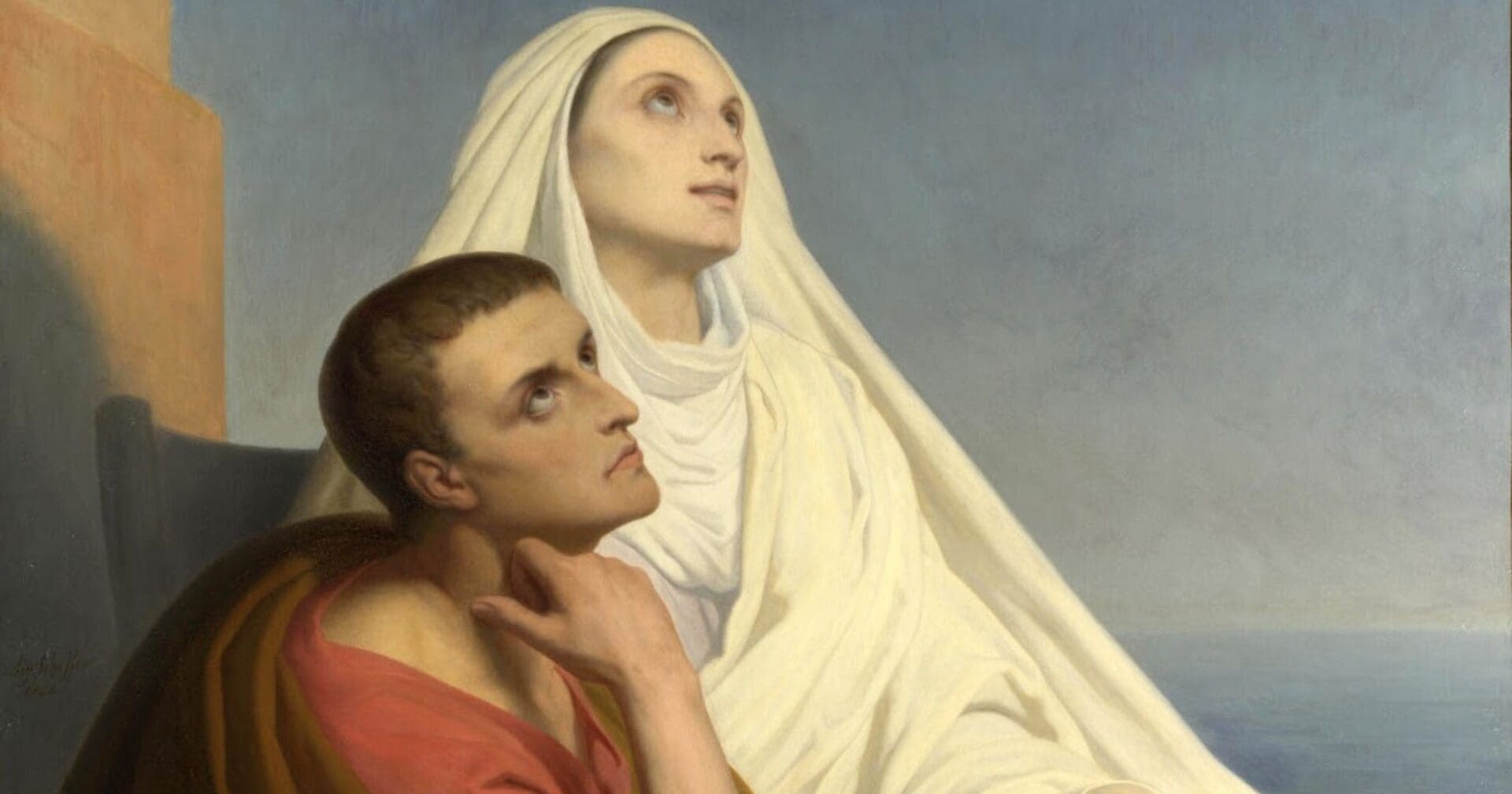
Saint Monica, was born in 332 AD in present-day Algeria, to Christian parents.
Monica was wedded at a tender age, between 13 or 14, to Patricius, an older man. Contrary to her religious upbringing, Patricius was neither wealthy nor a follower of Christ. Moreover, he possessed a hot temper and was unfaithful, challenges that Monica had to face daily. Her trials were compounded by the presence of a critical mother-in-law who lived with them.
Monica found solace and strength in her intimate relationship with God, and the joy of motherhood with her three children: Augustine, Navigius, and Perpetua. Tragically, two of her other children are believed to have died young.
After 20 long years of prayers, both Patricius and Monica’s mother-in-law embraced Christianity. However, her joy was short-lived; Patricius passed away a year later.
At this juncture, Augustine, then 17, was away studying in Carthage. Although bright, he fell into bad company and indulged in reckless passions. His life choices, including adopting the Manichean faith and keeping a mistress, brought great anguish to Monica. However, holding onto a bishop’s comforting words, “A son of so many tears cannot be lost,” she intensified her prayers for his return to Christianity.
Augustine’s journey to Italy for a teaching position marked another phase in Monica’s life. Despite his attempts to leave her behind, her love and determination saw her following him. Upon reuniting, she tried to anchor him through a prosperous marriage. However, after a series of personal choices, including another relationship and an abandoned engagement, Augustine’s life began to transform through his encounters with Ambrose, the archbishop of Milan.
Monica, Augustine, and her grandson shared a peaceful time in a country cottage in Milan. Under the spiritual guidance of St. Ambrose, Monica finally witnessed Augustine’s conversion and subsequent baptism in 387.
Feeling a pull towards their homeland, the family planned a return to North Africa. However, their journey paused at Ostia, where Monica passed away. Her death inspired some of the most poignant passages in Augustine’s “Confessions”.
Today, Saint Monica is venerated as the patron saint of various groups, including victims of abuse, alcoholics, and those in challenging marriages.
Photo credit: Public Domain via Wikimedia Commons
The post Saint Monica appeared first on uCatholic.
Daily Reading
Thursday of the Second Week in Ordinary Time
Reading 1 Hebrews 7:25—8:6 Jesus is always able to save those who approach God through him, since he lives forever to make intercession for them. It was fitting that we…
Daily Meditation
Finding Solace in Jesus
Click here for daily readings “He had cured many, and, as a result, those who had diseases were pressing upon him to touch him” (Mk 3:10). This scene opens with…




